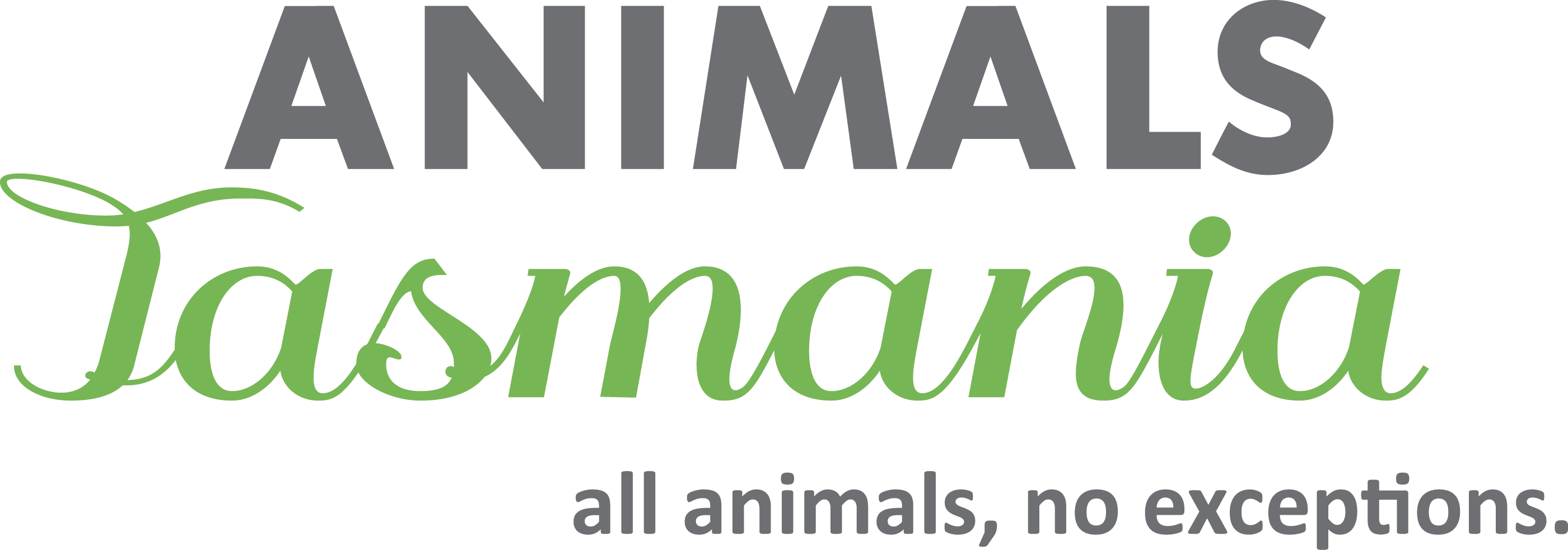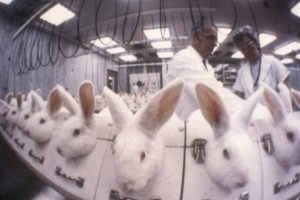[vc_row][vc_column width=”1/1″][vc_column_text]
Animals in “Research”
[/vc_column_text][/vc_column][/vc_row]
[vc_row type=”full_width_background” bg_position=”left top” bg_repeat=”no-repeat” parallax_bg_speed=”slow” bg_color=”#e8ede8″ scene_position=”center” text_color=”dark” text_align=”left” top_padding=”10″ bottom_padding=”10″]
[vc_column width=”2/3″][vc_column_text]
Hundreds of thousands of non-human animals are used in Tasmania alone for “research” purposes. This involves subjecting fish, sheep, rats, dogs, cats, horses and many other species to painful, invasive and unnecessary “scientific procedures”. Many products are tested on animals including household cleaning agents, personal hygiene products, medications and make-up and perfumes. Tests can include holding animals’ eyes open for the application of shampoo to gage whether they have a reaction, forcing animals to breathe tobacco smoke or paint fumes to test the outcomes and other such horrific procedures. The animals that are tested on are kept in small cages with little to no enrichment. Many are driven to madness by the stress and fear or the conditions in which they live and they never experience a kind hand.
Another important point to note is that animal testing is an incredibly unreliable predictor of how something will work with humans. Our anatomy is different to that of other non-human animals (obviously or we would realise that it is wrong to abuse them) so we react differently to chemicals and disease. Most products that prove “successful” in non-human animals simply don’t work in humans.
The best way to stop this is to refuse to buy products that are tested on animals and to seek out ethical companies that are committed to creating their products cruelty free with no ingredients that have been tested on non-human animals. The leaping bunny logo is one quick way to identify products that are free of animal testing, but many companies have their own logo, or simply state that their products are not made with animal tested ingredients. For more information refer to Choose Cruelty Free and the Humane Research Association.
[/vc_column_text][/vc_column]
[vc_column width=”1/3″ animation=”none” column_padding=”no-extra-padding” column_padding_position=”all” background_color_opacity=”1″ background_hover_color_opacity=”1″]
[/vc_column][/vc_row]


I had no idea there was any animal testing in Tasmania ! I’m shocked. Can you please supply the names of the companies involved and if possible their locations so I can organise a protest/boycott.
Thanks
Peter
Hello,
The main offenders for animal research (testing) are the universities: U Tas (over 22,000 animals in 2012), U Syd (>6000 animals), and also La Trobe, Murdoch, Deakin and ANU. The worst offender is DPIPWE (nearly 52,000 animals in 2012). The CSIRO come in quite high (5700 in 2012). Others include Entura, Zoetis, Virbac, Novartis, Jurox, though there are no recent stats for some of them.
Some of the research is non-invasive and may just be survey work, because permits are required for this sort of ‘research’. As such care needs to be taken in assessing who is doing what and it would be a good idea to do your own research into what activities each business or agency is undertaking before planning any action. Feel free to get in contact with us for assistance, or if you want to know more.
Thanks for your interest!